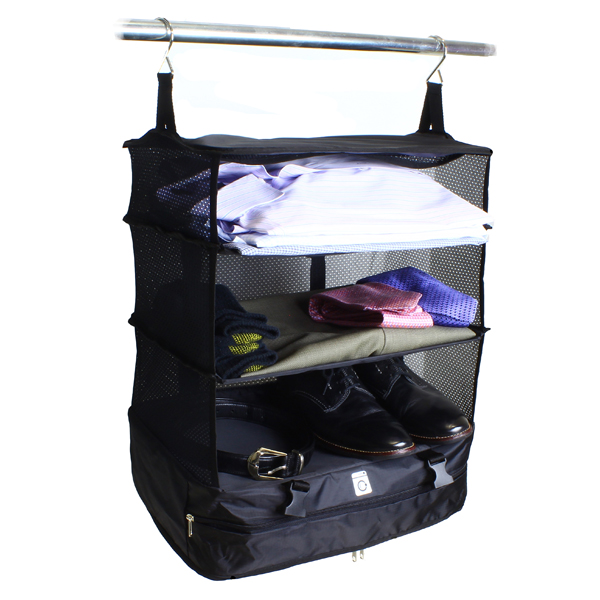Comparing Home Care to Traditional Care Facilities: Benefits and Challenges
As New York’s population ages, the demand for elder and disability care services is on the rise, presenting families with critical decisions about care. Choosing between home care and traditional care facilities is a significant consideration, each offering distinct benefits and challenges. This article explores these options, providing a comprehensive comparison to help you make an informed decision for your loved ones.
Contents [hide]
Defining the Care Options
Home Care
Home care offers services delivered directly to the recipient’s residence, ensuring comfort and convenience. Providers, such as True Care New York, offer a spectrum of support, including personal care for daily activities like bathing and dressing, healthcare services from qualified nurses or therapists, and companion services for social engagement and household chores. The hallmark of home care lies in its customization and adaptability, providing care specifically tailored to meet the unique needs of each individual.
Traditional Care Facilities
Traditional care facilities, including nursing homes and assisted living facilities, offer a communal living environment with access to 24/7 care and support. Nursing homes provide intensive medical care and supervision, while assisted living focuses more on personal care and daily living assistance in an environment that promotes independence.
Benefits of Each Care Option
Home Care
Home care’s primary advantage lies in its personalized approach. Care recipients benefit from one-on-one attention in the familiarity of their home, allowing for a customized care schedule and maintaining their daily routines. This option can also be more cost-effective, especially for those requiring lighter care.
Traditional Care Facilities
Traditional care facilities offer the peace of mind of constant medical supervision and the social benefits of living within a community. These facilities often provide various activities and amenities to keep residents engaged and active. These facilities can offer a valuable solution for families unable to manage the complexities of care logistics.
Embracing Technology in Care Solutions
The Role of Technology in Home Care
Advancements in technology are revolutionizing home care, making it an increasingly attractive option for many families. Telehealth services, remote monitoring systems, and health management apps allow for real-time health monitoring and virtual consultations, enhancing the quality of care provided at home. These technologies can alleviate some of the challenges associated with home care, such as ensuring constant communication between caregivers, patients, and healthcare providers, thus reducing feelings of isolation for the care recipient.
Integrating Technology in Traditional Care Facilities
Similarly, traditional care facilities are leveraging technology to improve the resident experience. Digital platforms facilitate social connections, enabling residents to communicate with family and friends easily. Furthermore, innovative health technologies in these facilities support better health monitoring and personalized care planning, ensuring that residents receive the most appropriate and effective care.
Community and Support Networks
Building Support Networks with Home Care
One of the hidden benefits of home care is the potential to build a supportive community network. Local support groups, community centers, and online forums can provide additional resources and social opportunities for care recipients and their families. Engaging with these networks helps share experiences and advice and combat the potential isolation associated with home-based care.
The Community Aspect of Traditional Care Facilities
On the other hand, traditional care facilities inherently offer a built-in community, with many organizing group activities, outings, and social events that encourage resident interaction. This communal environment can significantly benefit seniors’ mental health, offering daily opportunities for engagement and building friendships, which is vital for their overall well-being.
Challenges Faced in Each Option
Challenges of Home Care
Finding reliable, skilled caregivers poses a challenge for many families opting for home care. Significant considerations include managing round-the-clock care needs and potential feelings of isolation due to limited social interaction.
Challenges of Traditional Care Facilities
In traditional care settings, residents may need more personalized care due to staff-to-patient ratios. Adjusting to a new living environment and the potential limitations on visitations can also be difficult for many seniors.
Making an Informed Decision
Choosing between home care and traditional care facilities involves assessing the individual’s needs, preferences, and financial situation. Involving them in decision-making ensures their desires are respected and their well-being is prioritized. This critical choice impacts their daily life and happiness, requiring careful consideration of each option’s benefits and limitations.
While home care offers personalized comfort, it may necessitate home adjustments and finding caregivers. Traditional care facilities provide comprehensive services and social opportunities but at a potentially higher cost and with less customization. By weighing these aspects and engaging in open discussions with the care recipient, families can make a well-informed decision that best supports their loved one’s overall well-being.
Conclusion
Choosing the proper care option for a loved one in New York is a complex decision influenced by various factors, including personal needs, financial considerations, and the desired level of independence and social interaction. Whether opting for the personalized care offered by home care services or the comprehensive support of traditional care facilities, the most critical factor is finding a solution that best supports the well-being and happiness of your loved one. Consulting with healthcare professionals and care advisors can provide additional guidance, helping you confidently navigate this important decision.





I feel like home care is always a good option if there is someone available to provide that support 24/7
There are a lot of pros and cons here. It is a big decision and it is good to take all of these things into account.
home care definitely is so very beneficial for everyone – that emotional and mental well being it promotes is so amazing.. but we should of course make sure that it does impact or cause other issues..
I think home care is definitely preferable to traditional care facilities if the person does not need the extra supervision they would receive in a retirement home.
I think if it’s within reason home care should always be the first suggestion for exactly the reasons found here. Adjusting can be difficult, but adjusting while needing help and having to rely on strangers can feel worse so care at home can be a good trade up for comfort and familiarity.
Your comprehensive comparison between home care and traditional care facilities sheds light on the benefits and challenges of each option, making it easier for families like mine to make informed decisions.
Care is very important in individual. It will be dependent on the individual how they should be taken care of.
It really always depend on the people whether they want traditional or home care. Both of them has a pros and cons.
I prefer traditional home care because it allows me to stay close to my loved ones while receiving the care they need.
I remember when my dad had to make the decision to move my mom to adult daycare and then into memory care. She had frontal lobe dementia. It was hard watching but he did a great job deciding when it was best to make those decisions and transitions.
It can be hard to find the best care for someone. This has given me plenty to think about.
It looks like there’s lots of benefits to home care. I would do that for as long as possible but then would go to a care facility. I know my Nana Jo was in a retirement home and when she needed the extra help she moved to that area of the building.